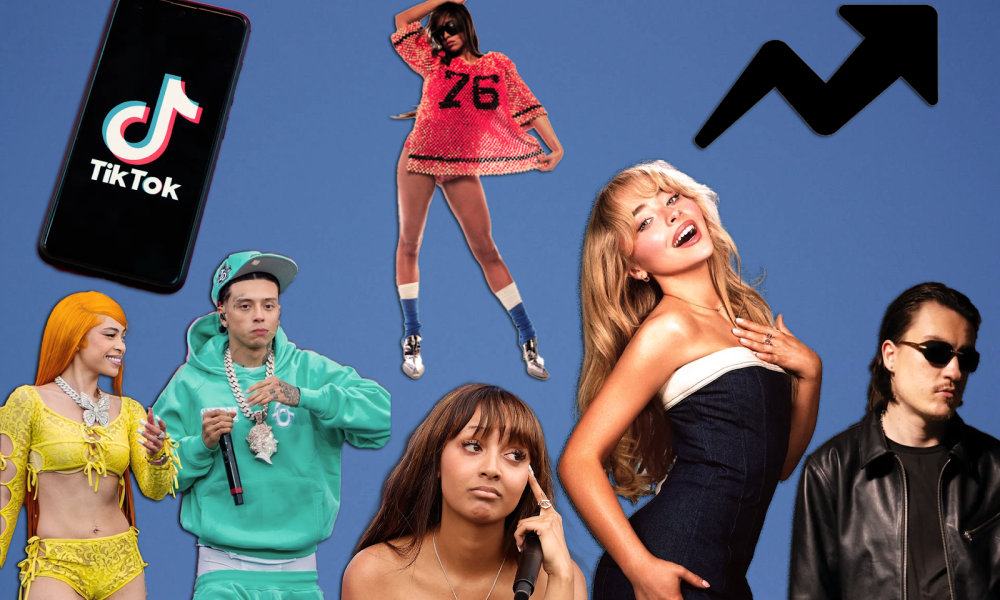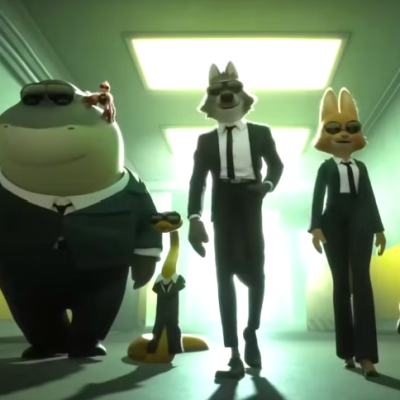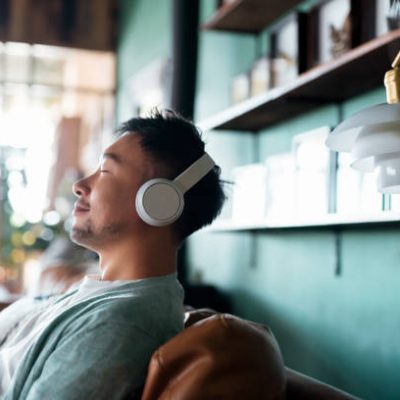TikTok Leaves Artists and Fans Deprived of Authenticity
If you have ever scrolled on TikTok, you may have noticed similar songs, videos, and content appearing on what the platform calls the “For You Page.” TikTok’s algorithm analyzes the user’s every move. From likes and comments to shares and watchtime, that information is used to recommend content for users. An important part of that content is music. In 2020, US TikTok Marketing Science commissioned MRC Data and found that 75% of TikTok users discover music on the platform. Similarly, in an official TikTok Blog post published in 2021, the platform’s global head of music stated “TikTok has become an integral part of music discovery, connecting artists to their fans.” But when people take advantage of the algorithm, we start to lose track of the purpose of the music. While TikTok is great for discovering music, it is creating an environment where artists focus on viral hits as opposed to the quality of their work.
Most popular artists work under a record label. Record labels help make, produce, and share the music of artists. In return, the label owns the recordings and videos made under the label, and the artist receives a partial commission. The more viral the song gets, the more money the label gets. And what better way to go viral than TikTok? Not only do viral songs on TikTok skyrocket artists to fame, but they also amass more income for the labels. Recently Chappell Roan, whose song “Good Luck Babe” gained traction from the platform, went from playing local bars and venues with 400+ capacity to drawing a crowd of 40,000 fans at Boston Calling. Labels have taken note of the impact TikTok has and as a result, pressure to produce a viral moment has been weighing on artists.
In May 2022, musician FKA TWIGS spoke out in a now-deleted TikTok about the pressure labels put on artists to “fabricate” a moment, saying “It’s true all record labels ask for are TikToks and I got told off today for not making enough effort.” The artist’s video gained growing attention and the support of fans who debated the integrity of the label and the honesty of the “content” produced. But Twigs is not the only artist who has spoken out about the demand artists face due to TikTok.
Singer/Songwriter Halsey went even further in a TikTok post in 2022, stating they had a song waiting to be released. Still, it couldn’t be released unless their record label could “fake a viral moment on TikTok” noting that “Everything is marketing, and they are doing this to basically every artist these days.” In spite of the uproar in artists speaking out, labels continue to mass produce content and songs in hopes of becoming a “trending topic.”
This “TikTok effect” impacts the quality of the music created. When labels try to make a viral hit, the music becomes inauthentic. Music is important because it connects with the listeners and their experiences. When you mass produce the music, it loses the connection between the artist and the listener. It becomes machine-made instead of composed by the musician. Eventually, the artist will stop making music that they connect with and start making music to appeal to TikTok. When this happens, the structure of the music changes as well. Part of this is songs getting shorter.
The Washington Post revealed that “since 1990, the average length of a song on the Billboard Hot 100 has decreased from over four minutes to around three, regardless of genre.” The average length of a TikTok is 30 seconds. In most cases, the part of the song that goes viral is the chorus. Labels and creatives have taken note of this and are reducing the lengths of separate parts of the songs in favor of the chorus.
Songwriter Pink Pantheress, whose chorus of her song “Turn it Up” became a hit song on TikTok, told ABC News, “A song doesn’t need to be longer than two minutes 30, in my opinion. We don’t need to repeat a verse, we don’t need to have a bridge, we don’t need it. We don’t need a long outro.” Pinkpanthress faced criticism for this statement, most notably from Musician Dionne Warwick who quote-tweeted “Artists are allowed to create their art in any way they choose. However, I do believe a bridge is important.” Dionne Warwick debuted in 1962 (pre-internet) while PinkPanthress released her first song “Pain” in 2021 (four years after the US debut of TikTok).
In addition, artists have begun releasing “Sped Up” versions of their popular songs, not only increasing the pitch but decreasing the length. Sabrina Carpenter released “Espresso (Double Shot Verison)” which as of August 2024 stands at 4,225,521 streams while Steve Lacy’s TikTok hit “Bad Habit (Sped up)” has amassed 102,800,891 on Spotify. Speeding up and shortening a song gives the artist a better shot at a TikTok moment but removes valuable parts of the song like the vocals, bridge, and verses. Because of that, the quality of the music declines.
Although TikTok does amplify viral songs and musicians to fame, its fast trend cycle makes the longevity of this fame uncertain and artists are left producing music in hopes of keeping that taste of stardom. When we continue to produce music solely for TikTok, it teaches the newer generation of artists that music does not need to be authentic. It teaches them that a successful musician is someone who is trending when in reality a successful musician is someone who can connect with the listener in a meaningful way.
As of now, it seems like TikTok is here to stay. But if we continue to market music to TikTok, will we lose that connection we feel when listening to our favorite artists? It is hard to tell, as TikTok has become part of everyday life. The way to ensure we don’t lose authenticity is to continue to stream music that connects with you. TikTok isn’t going anywhere, that manufactured song will continue to appear on your “For You Page” and artists will continue to produce that sped-up version. Enjoy the music that makes you feel, not the ones that TikTok tells you to relate to. When we support artists who we connect with, the manufactured songs start to become irrelevant. Support local bands and musicians in your area. Support independent artists. Go to shows! Human connection cannot be manufactured and when the labels, the songwriters, and TikTok realize that, we will move in the right direction.









